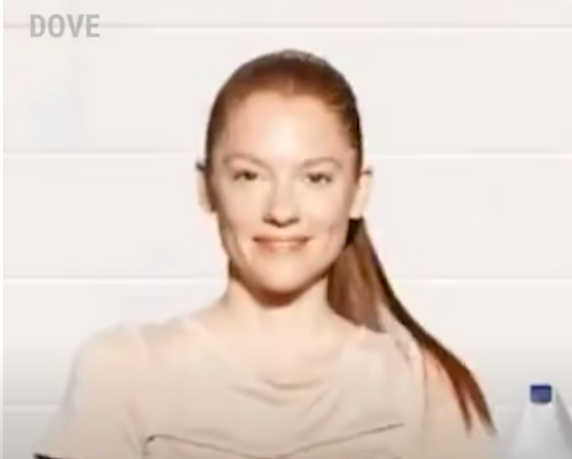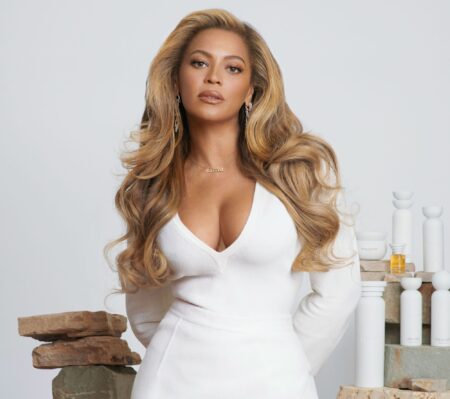Beauty is in the eye of the beholder-meaning it is subjective. Ideas of attractive qualities and characteristics differ across people, cultures, age groups, etc. What one person may find attractive, another could see as unappealing and vice versa. Everyone has their own individual visions of beauty, and many of us base a good chunk of our daily routines off these standards.
Since beauty is subjective, it should be all encompassing. The world isn’t homogenous. It’s filled with over 8 billion people all coming from various walks of life. It’s rich with different cultures and ethnicities, skin tones, hair textures, body types and more. Since beauty is subjective in a diverse world, it shouldn’t exclude or objectify certain groups of people.
The problem is when the concepts of beauty intersect with capitalism, colonization and racism. When the idea of beauty gets misconstrued by these elements, it becomes selective. It highlights certain types of qualities while discriminating against whole groups of individuals. It puts targets on people’s backs-disparaging natural qualities, while fetishizing and appropriating others. When it comes to the beauty industry, people of color are often a target-more specifically Black women.
Black women get singled out by the beauty industry in multiple ways that can be harmful and tiring. This can be shown through physical stereotyping and discrimination across eastern and western societies when it comes to marketing beauty. It’s also exemplified through a market that mainly profits off Black women, but in the same instance, makes it especially difficult for Black women to run themselves.
Western beauty standards were historically set by colonizers-who focused on “white femininity.” In the article, “Is Beauty In The Eyes Of The Colonizer?” author Leah Donnella explores how sentiments of white supremacy have impacted beauty standards in American and European societies. Donnella notes that women of color weren’t even allowed to compete in Miss America beauty pageants until the rule was changed in the 1940’s. Donnella also quotes the sentiments of historian Nell Irvin Painter in her book “The History of White People.” Painter said that when white supremacists formed their own beauty standards, “they not only wanted the people they called ‘their women’ to be the most beautiful, and ‘their men’ to be the most virile. They wanted ‘their countries’ to have the best politics. So they wanted to have everything better. And that included beauty.”
Colonizers created racial hierarchies that held white people at the top, while those who strayed away the most in looks were pushed to the bottom. Because of systemic oppression, these sentiments can still translate to beauty standards today that patronize Black women for their hair, bodies and skin color.
In February, the CROWN coalition-in partnership with Dove-released a survey that cited several statistics that highlight hair discrimination towards Black women. According to the study, Black women are over two times more likely to be told their natural hair looks unprofessional. Also, the study states, “Approximately 2/3 of Black women (66%) change their hair for a job interview. Among them, 41% changed their hair from curly to straight.”
For centuries, Black women have been told to adhere to white standards by straightening their hair to look more acceptable towards white culture. White supremacy in the beauty industry serves to indoctrinate people of color with the belief that their look alone is not enough.
Looking towards eastern culture, colorism also plays a significant role in Asia. In the article, “Colorism and its impact on anti-Black racism in Asia,” writer Jessica Wei Huang discusses her childhood growing up as a darker skinned Taiwanese girl. There, class structures created colorism.
“Unlike the racist ideology that was a direct result of the rationalism of slavery by Western European countries of Portugal, Spain, Great Britain (Kendi, 2016), colorism in Asia came from the idea that lower-wage workers had to work in the fields and had darker skin as a result,” Wei Huang states. “Lighter-skinned people were able to stay out of the sun.”
While this ideology didn’t come from colonist-instilled beliefs, it did emerge from a sense of classism that intersects with racism. It’s completely irrational to equate someone’s melanin with poverty.
Black women are also singled out in the beauty industry through a lack of representation as well. Even with brands progressing, and beauty brands with Black founders like Rihanna’s Fenty Beauty have entered the limelight. Global marketing continues to face issues of colorism.
In the article, “Marketing Still Has a Colorism Problem,” writer Mita Mallick recounts her experience entering the marketing world and how dark-skinned models would be excluded for looking “too dark.” Mallick highlights how brands will claim a diversity initiative, but then will solely focus on lighter skinned, ethnically ambiguous or mixed race models to achieve this. In recent years brands such as Nivea, Dove, Louis Vuitton, H&M and more have come under fire for colorism and racist messages in their brand marketing. In a 2017 Dove ad, the brand suggested a white woman is cleaner than a Black woman with the ad below.
Whether this messaging is intentional or not, the racism is apparent and showcases systemic discrimination in beauty.
What’s interesting-and quite hypocritical-is the fact that Black women are central to the beauty industry. In modern times we see white women spending all this money to achieve qualities that are commonly considered natural attributes to Black women. In recent years, Black twitter users coined the term “blackfishing” to describe white people who try to look Black. This came to light with various celebrities who were seemingly trying to “race impersonate.” The Kardashians sisters are commonly accused of blackfishing-from body augmentations such as lip injections and surgeries to achieve curvier figures to Kim outright sporting tribal braids at a public outing.
Black women also push the beauty market by being key contributors to an evergreen flow of revenue. In the 2022 Mckinsey article, “Black representation in the Beauty Industry,” it notes that Black consumers in America make up 11.1% of spending in this market-a significant enough portion to have an abundance of beauty supply stores catered specifically to Black women and their beauty purchases. Although these stores are meant for Black people, there is a disproportionate lack of Black owned beauty supply stores. Only 2.5% of beauty supply stores in America are Black owned-according to McKinsey.
A great majority of Black-influenced beauty supply stores are actually run by people of Korean descent. In the New York Times article, “A Korean Store Owner. A Black Employee. A Tense Neighborhood,” multi-beauty supply store owner Yong Sup Na, shares that when he immigrated to Chicago from Korea, his friend was able to purchase store property on the South Side due to white flight.
“This man was upset that the Black people were moving into the neighborhood,” Na said. “Koreans didn’t care. This was an area that they could afford.”
The article also follows Chicago native and store employee, Crystal Holmes, who is a Black woman. She had been wrongfully accused of stealing from the register at a previous beauty supply store she worked at-even though she pointed out that her coworker (a Korean man) was also working register and had a gambling problem. She also noted how she feels targeted at these stores, as employees will follow her while she’s shopping-assuming she’s going to shoplift.
Lastly, Holmes said Na would invite her on inventory trips to wholesale centers. Often on these trips the only Black person she would witness getting products for the store was herself, and she noticed a strong lack of inclusivity between Korean wholesalers and Black people trying to enter a market that’s directed towards them.
Once again it’s quite hypocritical and demeaning to racially profile the same group of people that are giving your business success so you can have a roof over your head and food on your table. Still there remains odd senses of hostility towards Black women in beauty supply stores.
Last week, an altercation occurred at a beauty supply store in London between the store owner and a shopper. In a viral video, shop owner Sohail Sindho-an Asian man-is seen allegedly choking out a Black woman after an argument over a refund. In the video, the woman is heard yelling “Get off me, he’s trying to strangle me. Get the f-ck off me. Call the police! Call the police! This man just strangled me!”
The reality is, the relationship between Black women and the beauty industry is one like no other. As long as the Western world is stuck in systems rooted in colonialism; the Eastern world maintains racist sentiments stemming from traditional classism; and as long as people can continue to capitalize off the same group they’re marginalizing, Black women will continue to be targeted by the beauty industry. Looking towards the future, it’s important to highlight and support genuine Black owned and operated brands and businesses that will look out for their own people.








